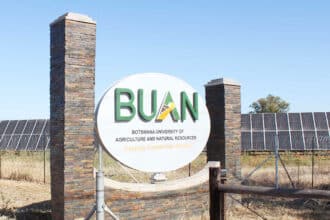First National Bank Botswana (FNBB) says the plan by Statistics Botswana (SB) for rebasing national accounts has the potential to advance the diversification agenda and propel economic growth.
SB has undertaken a project to rebase national accounts from 2016, leading to the reclassification of some industries and sub-industries.
“Consequently, several revisions have been made to Botswana’s historical nominal GDP values between 2014 and 2020,” the bank’s Acting Chief Executive Officer (CEO), Luke Woodford revealed in a recent announcement of FNBB’s financial results.
He explained the revised economic growth for 2020 is a contraction of 8.5 percent (previously estimated contraction 7.9 percent before the rebasing).
“The negative growth was mostly attributed to severe disruptions caused by the Covid-19 pandemic,” explained Woodford, adding all sections of the economy reflected contractions save for agriculture and utilities.
In the first quarter of the year, GDP growth was registered at 0.7 percent year-on-year compared to 1.2 percent of the same time last year.
The marginal growth is mainly said to be down to muted consumer activity and business capacity utilization remaining low.
“We anticipate economic growth to rebound above the 6 percent levels in 2021, hinging mainly on the continued medium-term recovery in global diamond sales and increased production levels over the second half of 2021,” said Woodford.
While Botswana remains exposed to external disruption from the pandemic, Woodford said the pace of local vaccinations against Covid-19 will largely determine the rate of recovery in normal business operations.
The bank anticipates growth momentum to be maintained at positive average levels through 2024.
Meanwhile, Woodford said the success of the Economic Recovery and Transformation Plan (ERTP) lies in the improvement of the national project management and implementation with the involvement of the private sector.
The plan, estimated at a cost of P14.5 billion, aims to protect existing businesses from the disruptions that occurred last year as well as to stimulate growth in sectors that have traditionally contributed little to the GDP.
Sectors such as manufacturing and agriculture have been identified as key industries that could spur economic growth while tourism has been added to the list, though it has long been one of the major contributors to the GDP.





